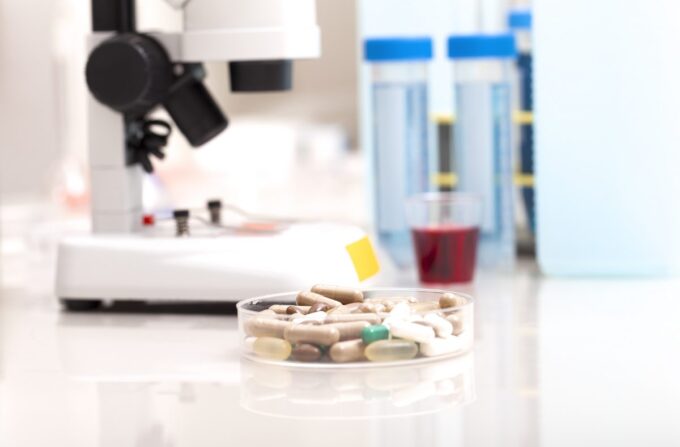Clinical trials are research studies that test how well new medical approaches work in people. They are an essential part of developing new treatments and bringing new hope to patients and families who are affected by the disease.
Clinical trials are essential to the FDA’s approval process for new drugs. The trials are conducted in phases, with each phase designed to answer specific questions about the new treatment.
In Phase I clinical trials, researchers test a new drug or treatment in a small group of people for the first time to evaluate its safety, determine a safe dosage range, and identify side effects.
In Phase II clinical trials, the new drug or treatment is tested in a larger group of people to see if it is effective and to further evaluate its safety.
In Phase III clinical trials, the new drug or treatment is tested in an even larger group of people to confirm its effectiveness, monitor side effects, and compare it to existing treatments.
After a new drug or treatment has been through all three phases of clinical trials and is approved by the FDA, it is made available to the public.
Types of Pharmaceutical Companies
There are many types of pharmaceutical companies, each with its own specific strengths and weaknesses. The following is a brief overview of the most common types of pharmaceutical companies.
Pharmaceuticals are broadly categorized into two types: over-the-counter (OTC) and prescription. OTC drugs are usually medications that are sold without a prescription, while prescription drugs must be obtained from a doctor. Prescription drug sales totaled $374.2 billion in 2013, accounting for more than one-third of all pharmaceutical sales.
Major pharmaceutical companies include Abbott Laboratories, Amgen, AstraZeneca, Bristol-Myers Squibb, GlaxoSmithKline, Johnson & Johnson, Merck & Co., Novartis AG, Pfizer Inc., and Roche Holding AG.
Research and development of new drugs

Source: openaccessgovernment.org
The main activities of a pharmaceutical company are to develop, manufacture, and market drugs and other health-related products.New drugs are developed through a process known as research and development (R&D). R&D involves conducting experiments in order to find new drug treatments or cures for diseases. Pharmaceutical companies spend millions of dollars on R&D each year in order to turn novel ideas into viable products.
One of the most important aspects of R&D is testing the safety and efficacy of new drugs. Before a drug can be approved by the FDA, it must be shown to be safe and effective in clinical trials. Clinical trials are often long and arduous tests that examine the effects of a new drug on humans. If a drug is found to be safe and effective in clinical trials, it can then be approved by the FDA for use in patients
Pharmaceutical company key areas Hong Kong may also engage in research and development, and clinical trials. Sites like pfizer.com.hk can tell you more about it.
Despite all the challenges involved in developing new drugs, the pharmaceutical industry remains one of the most important sectors of the economy. Millions of people around the world rely on medications developed through R&D to treat serious illnesses. Thanks to ongoing R&D efforts, there is always hope that next generation medications will help improve patients’ lives
Manufacturing of drugs

Source: pharmaceutical-technology.com
The process of manufacturing drugs is a complex and regulated process. Every step in the manufacturing process must be carefully controlled to ensure quality and safety. The process begins with the raw materials, which must be of the highest quality. These materials are then mixed together in the correct proportions and processed in a variety of ways to create the finished product.
The process of manufacturing drugs is heavily regulated by governments to ensure that the finished products are safe for human use. In the United States, the Food and Drug Administration (FDA) is responsible for regulating the manufacturing of drugs. The FDA has strict guidelines that must be followed to ensure that drugs are safe and effective.
Drug manufacturing is a complex process that requires careful control at every step. The finished product must meet strict safety and quality standards.
Marketing and sales of drugs

Source: thedrum.com
Sales of drugs are an important part of the marketing mix for pharmaceutical companies. Drug sales representatives (DSRs) are the key link between pharmaceutical companies and healthcare professionals (HCPs). They promote the company’s products to doctors, pharmacists, and other HCPs, and provide information about the products.
The role of the DSR has changed over time, as have the methods used to sell drugs. In the past, DSRs would visit HCPs in their offices and promote the products through personal relationships. However, with the advent of the internet and social media, DSRs now have to use more innovative methods to reach HCPs.
Many pharmaceutical companies have now moved to a direct-to-consumer (DTC) approach, where patients are made aware of the products through advertising. This is done through television, radio, and print ads, as well as online and social media. DTC advertising is controversial, as some people feel that it leads to patients asking for drugs that they may not need.
The role of the DSR is changing, but they are still an important part of the marketing mix for pharmaceutical companies.
Regulatory compliance

Source: today.uconn.edu
Most businesses are subject to some form of regulation. Depending on the industry, businesses may be regulated by federal, state, or local agencies. Regulatory compliance is the process of adhering to these regulations.
There are many benefits to complying with regulations. First, it protects the public from harmful or dangerous products or services. Second, it levels the playing field for businesses, so that all companies are held to the same standards. Finally, complying with regulations can help businesses avoid costly fines or penalties.
There are some challenges to complying with regulations. First, regulations can be complex, and it can be difficult to keep up with all the changes. Second, some regulations may be outdated or no longer relevant to the business. Finally, complying with regulations can be costly, and may require the hiring of additional staff or the purchase of new equipment.
Despite the challenges, complying with regulations is important for businesses. By understanding the regulations that apply to their industry, and taking steps to ensure compliance, businesses can protect the public, level the playing field, and avoid costly fines.







